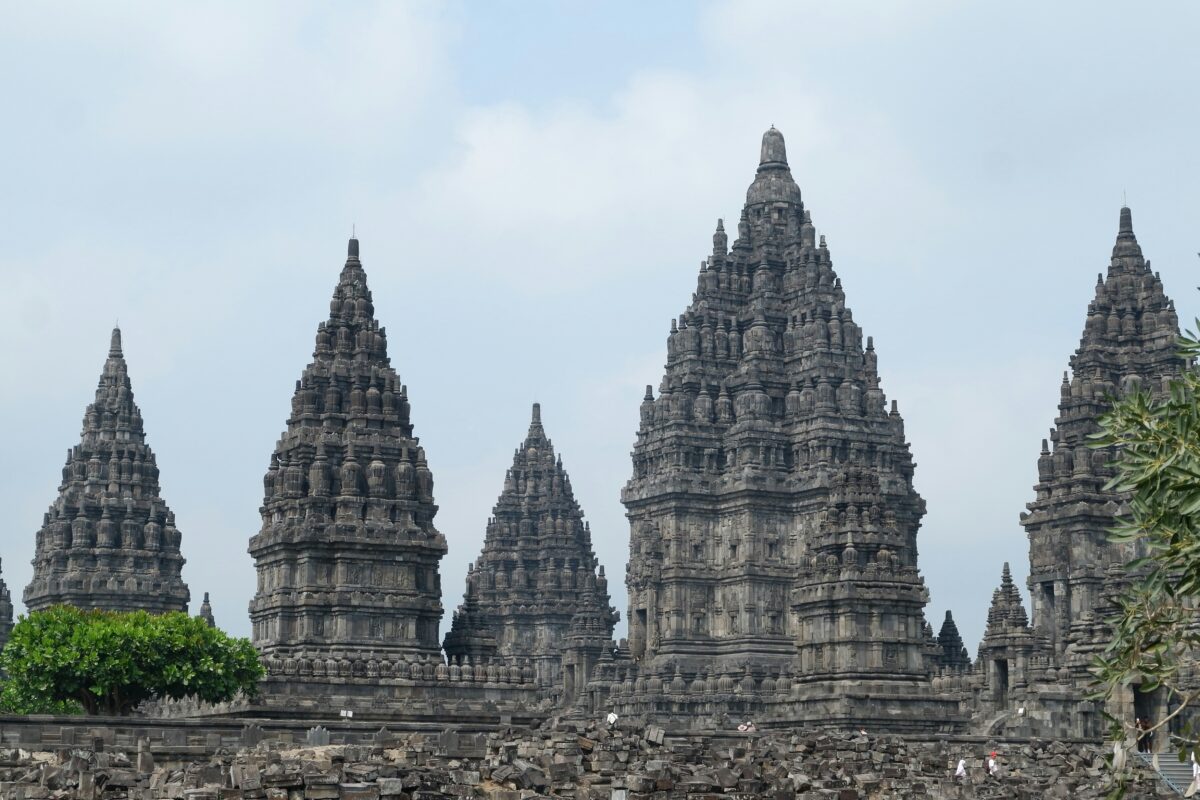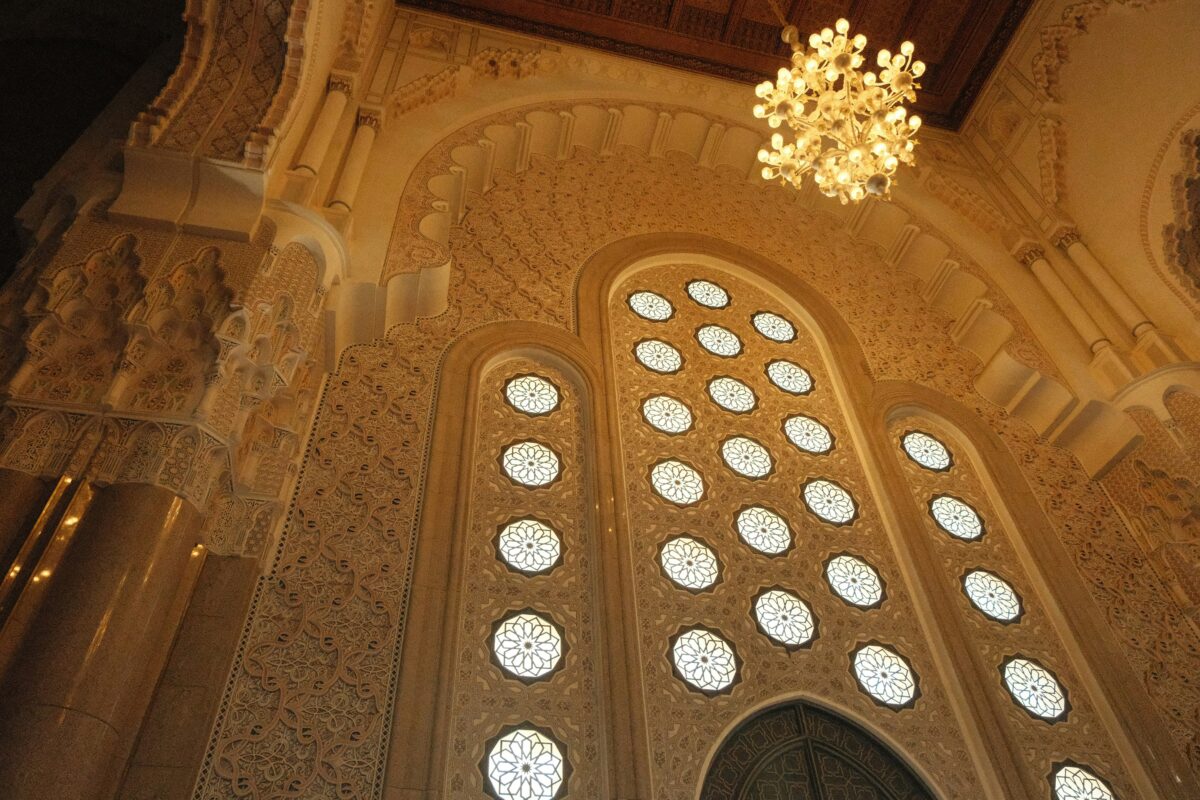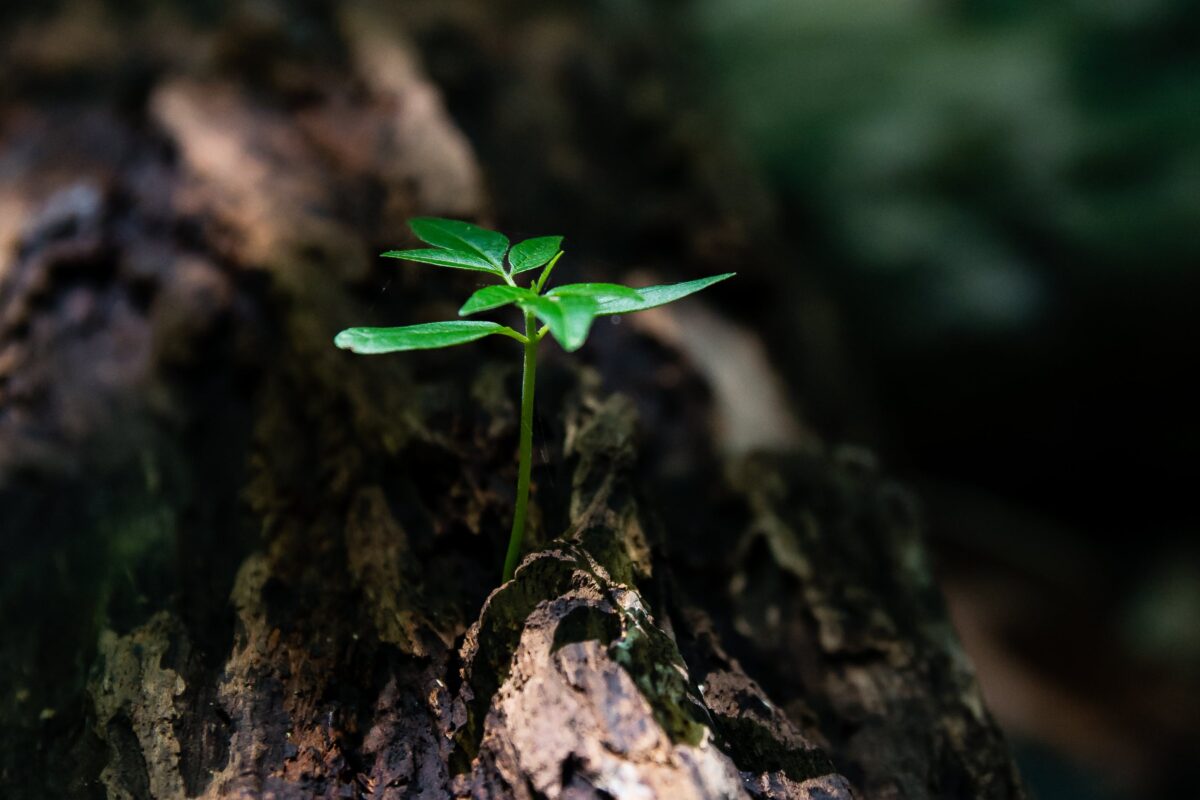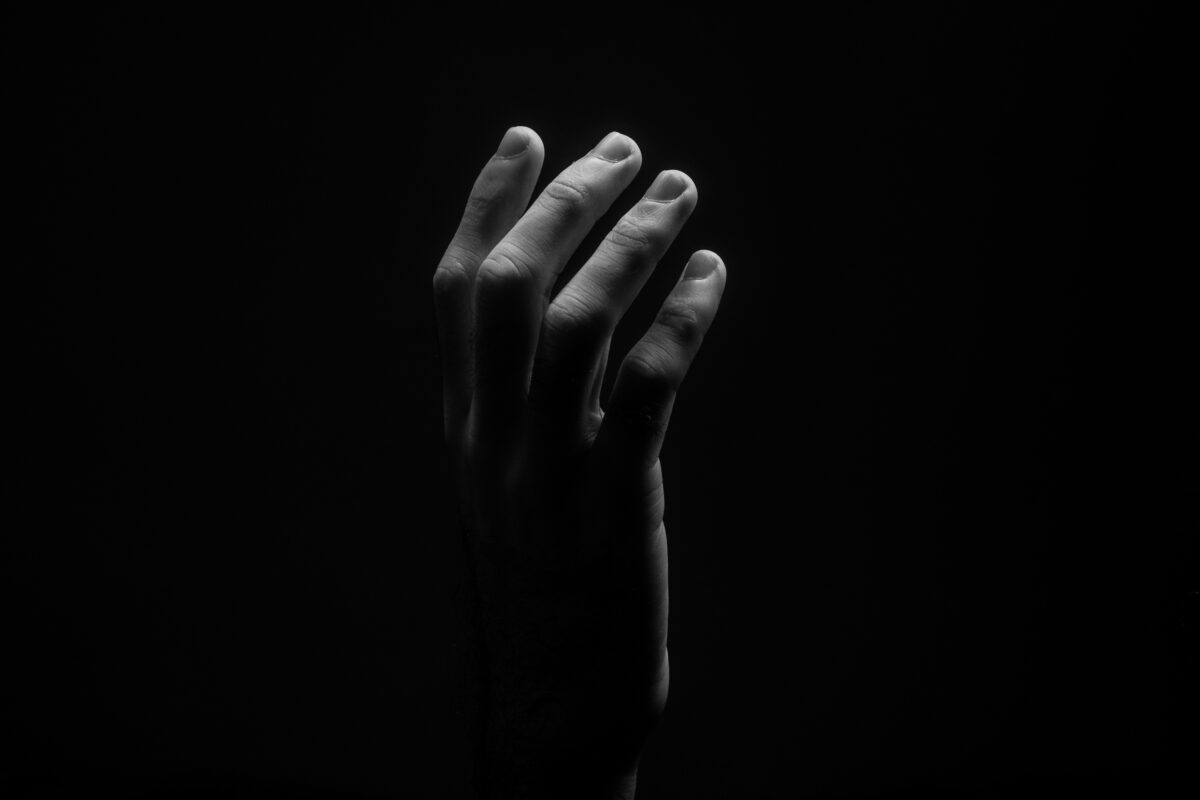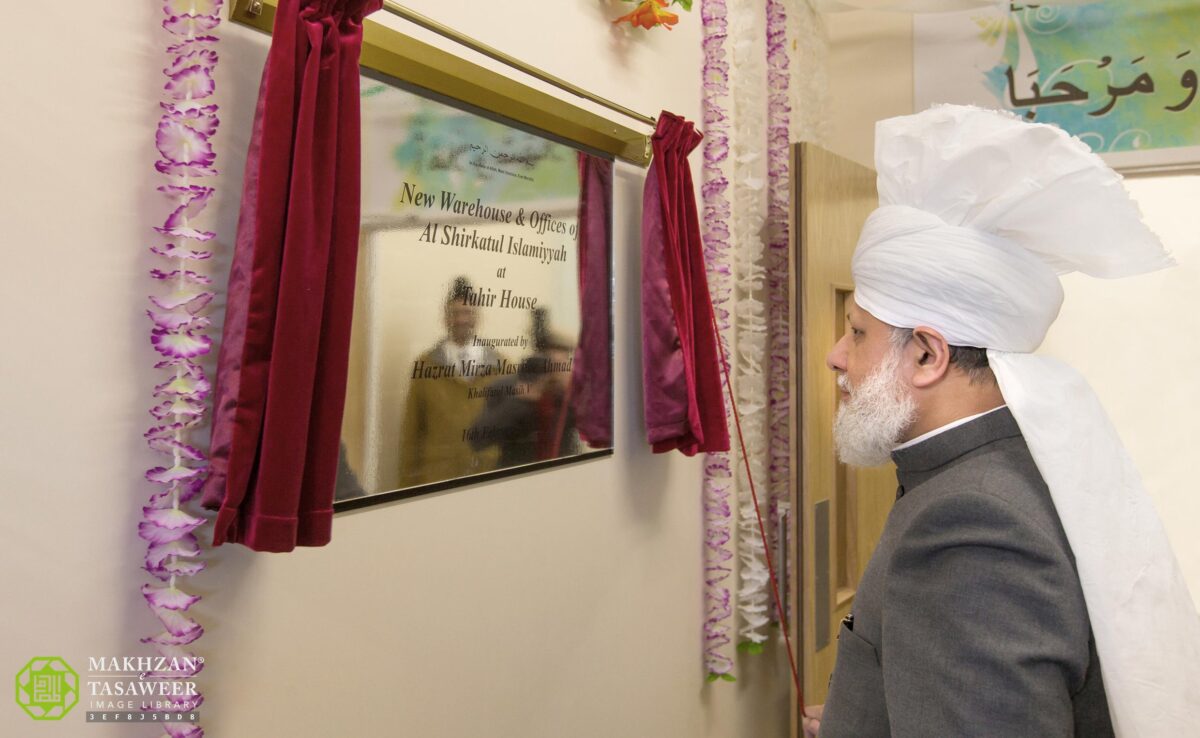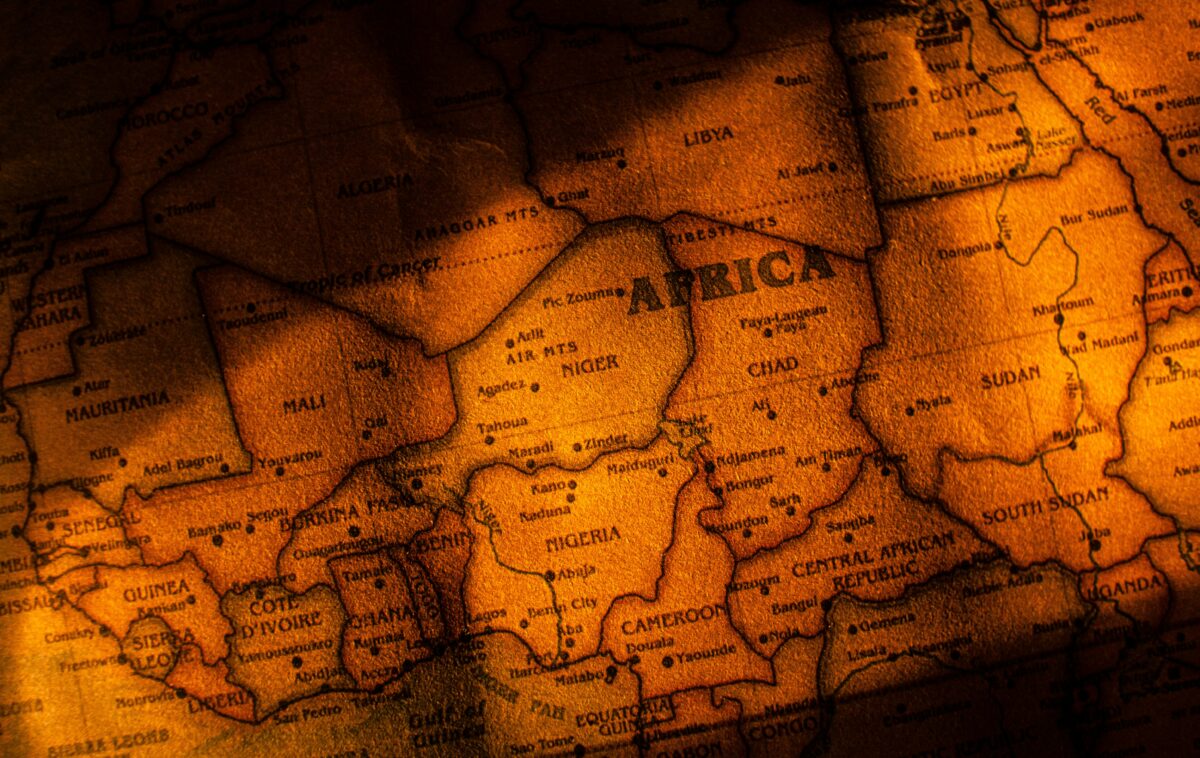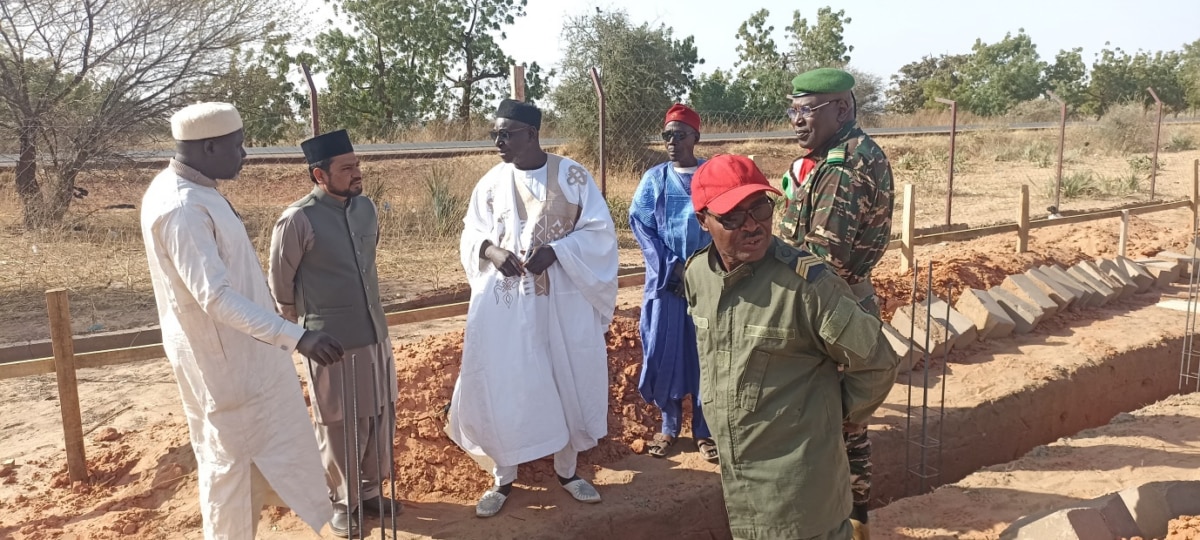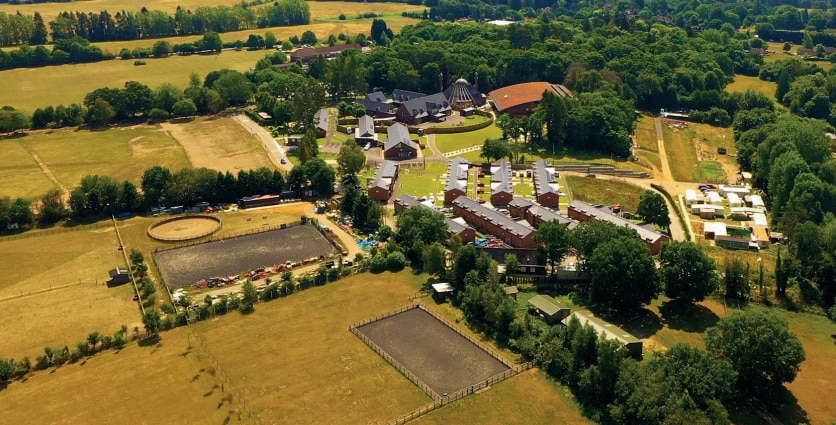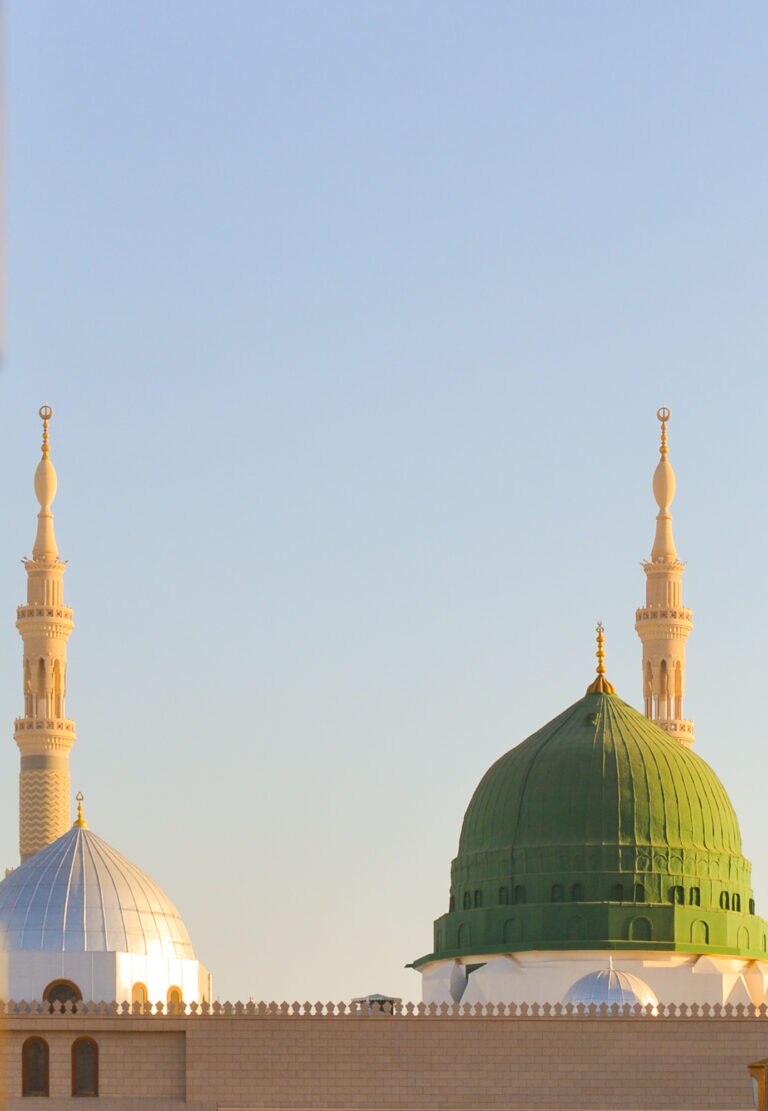Friday Sermon
19 January 2024
Muhammadsa: The Great Exemplar
After reciting the tashahhud, ta‘awwuz and Surah al-Fatihah, Hazrat Khalifatul Masih Vaa stated:
Events surrounding the Battle of Uhud were being mentioned [in recent sermons]. I will narrate some further details in this regard. As mentioned, the enemy declared that the Holy Prophetsa had been martyred. What was the state of the Muslims when they learnt of this news of the Holy Prophetsa being martyred? The details in relation to this are as follows:
When Ibn Qami’ah believed he had martyred the Holy Prophetsa, he announced that “Muhammad[sa] has been martyred”. It is also said that it was Satan who made this announcement, who took the form of Ju’al or Juwail bin Suraqah. Ju’al was one of the early Muslim devotees and was among the people of Suffah. The Holy Prophetsa changed his name to ‘Umar on the occasion of the Battle of the Ditch.
In any case, when people heard this, they rushed towards Ju’al in order to kill him. However, he expressed that he had not made any such announcement and had nothing to do with it. Khawwath bin Jubayr and Abu Burdah testified that when they heard this call, Ju’al was fighting beside them. It is also said that the one who made this announcement was Azab al-’Aqabah, who announced three times that the Holy Prophetsa had been martyred. There are several narrations with regard to who made this announcement. It is possible that various people experienced it differently and that multiple individuals made such announcements: Ibn Qami’ah, Iblis and Azab al-’Aqabah. It is also possible that some other evil-natured person made the announcement as well. As this news spread, some Muslims said, “Since the Holy Prophetsa has passed away now, you all should return to your tribe, as they will grant you protection.” Upon this, some others said, “If the Holy Prophetsa has been martyred, will you no longer fight for the religion and message of your Prophetsa until you meet your Lord as a martyr?”
Hazrat Thabit bin Dahdahra said to the Ansar, “O party of the Ansar! Even if the Holy Prophetsa has been martyred, Allah the Almighty is alive and death cannot overtake Him. Fight for your religion and Allah the Almighty will grant you victory and success.” Hearing this, a group of the Ansar got up and launched an attack alongside Hazrat Thabitra against a contingent of the idolaters, which included Khalid bin Walid, ‘Ikrimah bin Abu Jahl, ‘Amr bin al-‘Aas and Dirar bin al-Khattab. Seeing this small party of Muslims launch an attack, Khalid bin Walid launched a severe counterattack on them and martyred Thabit bin Dahdahra and his Ansari Companions. (‘Ali bin Burhan al-Din al-Halabi, Al-Sirah al-Halabiyyah, Vol. 2 [Beirut, Lebanon: Dar al-Ma’rifah, 2012], pp. 489-490)
In relation to this dire state, Hazrat Mirza Bashir Ahmadra has written the following in The Life and Character of the Seal of Prophetssa:
“At the time, the Muslims were divided into three groups. One group was of those who had fled from the field of battle upon hearing news that the Holy Prophetsa had been martyred, but this group was the smallest of all, and included Hazrat ‘Usman bin ‘Affanra as well. However, as mentioned in the Holy Quran, taking into consideration the special circumstances of that time, and the heartfelt faith and sincerity of these people, Allah the Exalted forgave them. From among these people, some had even reached Medina, and in this manner, news of the so-called martyrdom of the Holy Prophetsa and the defeat of the Muslim army managed to reach Medina as well. A state of lamentation broke out in Medina, and the Muslim men and women, both young and old, all came out of the city in a state of immense dismay, and set out towards Uhud. Some made haste to the field of battle and plunged into the enemy ranks in the name of Allah. (They started fighting as well.)
“The second group consisted of such people who had not fled but, upon hearing news of the martyrdom of the Holy Prophetsa, had either lost determination or felt that now it was useless to fight. Hence, they had moved to one side of the battlefield, and sat down with their heads hanging low.
“The third group was made up of those who continued to fight on without fail. Among them, some consisted of those people who were gathered around the Holy Prophetsa and were exhibiting unprecedented feats of valour, and most of them were fighting in the field of battle, scattered apart from one another. As these people, and those from the second group continued to discover that the Holy Prophetsa was alive, these people would continue to fight and close in around the Holy Prophetsa in the likeness of those possessed by madness. The state of war at the time was such that the army of the Quraish would push forward from all four fronts in the likeness of ferocious ocean waves. A rain of arrows and stones was falling upon them on the battlefield from all directions. Upon witnessing this state of danger, these devotees surrounded the perimeter of the Holy Prophetsa and shielded his blessed body with their own. However, despite this, whenever the force of the attack would surge forward, this handful of men would be jostled here and there, and in this state, at times, the Holy Prophetsa would almost be left standing alone. In one such instance, a stone thrown by ‘Utbah bin Abi Waqqas, the idolatrous brother of Sa‘d bin Abi Waqqasra, struck the blessed countenance of the Holy Prophetsa, which broke his tooth and also wounded his lip. Shortly after, another stone thrown by ‘Abdullah bin Shahab wounded the forehead of the Holy Prophetsa. Then, a third stone thrown by Ibn Qam’iah struck the blessed cheek by which two rings on the ‘mighfar’ (or helmet) of the Holy Prophetsa pierced into his cheek. Sa‘d bin Abi Waqqasra was so enraged at this action of his brother ‘Utbah, that he would say he never felt so eager to kill an enemy, as he was to kill ‘Utbah on the day of Uhud.” (Sirat Khatamun-Nabiyyin, Hazrat Mirza Bashir Ahmadra, pp. 493-494)
Hazrat Musleh-e-Maudra has mentioned the philosophy of the acceptance of prayer. While mentioning this, he explained this incident in the Battle of Uhud in great detail. Expanding upon this, he states:
“What I said regarding the British gaining victory is that if they established themselves upon the Oneness of God and asked me to pray for them with a pure heart, they would gain victory.” This was in 1940, during World War II. Hazrat Musleh-e-Maudra continues, “If these people ask me to pray, they will be victorious. [He continues] “This is in complete accordance with God Almighty’s prophecies, His Divine Word, and my visions. The Promised Messiahas has prayed a lot for this nation, but these nations have placed a mere mortal being upon the throne of God Almighty, which is why God Almighty is putting them through trials.”
That is, they claim that Prophet Jesusas is the son of God, this is why these people are facing trials. Many prayers have been offered for them. Then he mentioned the Paighamis [Lahori sect], “If the Paighamis wish to deny this, then they may do so”, meaning the Paighamis hold a belief contrary to what Hazrat Musleh-e-Maudra is stating.
Hazrat Musleh-e-Maudra continues, “The impediment in the acceptance of the prayers which the Promised Messiahas has offered for them is due to the fact that they have associated partners with Allah; and if this impediment is partially or completely removed, then these prayers shall certainly be accepted. I have seen several visions that my prayers can remove their afflictions, but this does not mean that whatever prayer I offer is automatically accepted. If it was in my power to do so, then why would I not remove the afflictions that we face? It is stated in the Holy Quran, that the disbelievers used to say to the Holy Prophetsa, that if you are truly beloved by God Almighty, then why do you not resolve such and such tasks of yours? But Allah the Almighty states that ‘O Muhammadsa, say that “if it was in my power to do so, then why would I not collect all benefits for myself?”’
Thus, if this principle does not even apply to the Holy Prophetsa (that all of his prayers be accepted), then how can this be applied to me? It was a divine law that even for the Holy Prophetsa, when God Almighty desired to accept his prayer, and desired to establish the honour of the Holy Prophetsa by means of a sign, then He would certainly accept it, then how can the opposite occur for myself or for someone else? I accept that it is within the power of the British that, if they wished, they could execute us or imprison us even though, at present, they appear weaker in comparison to their enemy (and at the time, they were in quite a precarious state during World War II).
“Despite this, it is my claim that their afflictions can be removed by way of my prayer, because the power they hold over our lives is under a different law, and the acceptance of prayer is governed by a different law. The king of Persia intended to arrest the Holy Prophetsa, but those who were to arrest them had not yet arrived; rather, only the envoys from the Governor of Yemen brought the message, but the Holy Prophetsa told them ‘Go and tell your master that we will not come. Our God has killed your god.’ Allah the Almighty incited the son of the king, and he killed his own father, but during the Battle of Uhud, the enemy attacked the Holy Prophetsa, threw stones, broke his teeth, his head was injured, the nails of his helmet became embedded in his face; he became unconscious and fell down, after which some other Companions fell on top of him. Owing to this, some Companions thought he had been martyred. Now someone can ask, that if Allah the Almighty honoured the Holy Prophetsa so much so that he caused the king of Persia, who lived far away, to be killed, then why did he let the disbelievers throw stones at the Holy Prophetsa on the battlefield of Uhud?
“Such allegations are not correct. This is the prudence and wisdom of Allah the Almighty. These are His Divine intricacies. At times, He punishes a person for an insignificant matter, and at other times, in accordance with what He deems prudent, He shows leniency so that a person realises their own helplessness and destitution.” (Khutbat-e-Mahmud, Vol. 21, pp. 227-229, Friday Sermon, 5 July 1940.)
Nonetheless, the incident [of Uhud] was being narrated. After the rumour of his death, the Holy Prophetsa suddenly appeared in front of the Companions. In an explanation of this, it is written that Hazrat Abu Ubaidahra was the first person at that time to recognise the Holy Prophetsa, that he was alive and well. Hazrat Abu Ubaidahra said, “I recognised the Holy Prophetsa from his glowing and radiant eyes under his “khaud”.
“Khaud” was a type of helmet that a soldier would use to protect his head and face.” Nonetheless, he stated: “I saw a great brilliance and light in his eyes, and I knew that the Holy Prophetsa is alive. Thus, as soon as I recognised him, I yelled with all my might: ‘O Muslims! I give you glad tidings that the Holy Prophetsa is among us.’ Upon this, the Holy Prophetsa gestured to me that I should remain silent.” (‘Ali bin Burhan al-Din al-Halabi, Al-Sirah al-Halabiyyah, Vol. 2 [Beirut, Lebanon: Dar al-Kutub al-‘Ilmiyyah, 2002], p. 320; Al-Sirah al-Halabiyyah [Translated], Vol. 2, Dar al-Isha’at, Karachi, p. 179)
In another narration, it is stated that it was a different companion who recognsed the Holy Prophetsa. Thus, one author writes that after falling into the trench, the Holy Prophet’ssa entire body was covered in blood. When he came out [of the trench], Hazrat Ka’b bin Malikra recognised the Holy Prophet’ssa eyes from beneath his helmet and yelled out in joy:
يَا مَعْشَرَ الْمُسْلِمِيْنَ أَبْشِرُوْا هَذَا رَسُوْلُ اللّٰهِ
“O party of Muslims! Rejoice for it is the Messengersa of Allah!”
Upon this, the Holy Prophetsa gestured to him to remain silent. However, as the Muslims continued to receive news of this, they rushed towards the Holy Prophetsa, among them were Hazrat Abu Bakr Siddiqra, Hazrat Umar bin al-Khattabra, Hazrat Ali bin Abi Talibra, Hazrat Talhah bin Ubaidillahra, Hazrat Zubair bin al-Awwamra, Hazrat Harith bin Simahra and various other Muslims. The Holy Prophetsa, along with his Companions, took shelter in the mountain pass of the Uhud mountain. Along the way, whenever an attack was launched by the enemy, the Companions of the Holy Prophetsa responded emphatically. (Da’irah Ma’arif Sirat Muhammadsa, Vol. 6 [Lahore, Pakistan: Maktabat Dar al-Ma’arif], p. 537)
In certain books, it has been narrated that when the momentum of the battle suddenly shifted, the situation of the battle became very perilous and dangerous. Suddenly, the Holy Prophetsa emerged between Hazrat Sa’d bin Muadhra and Hazat Sa’d bin Ubadahra and the Companions were able to recognise him from his manner of walking. In that moment, they were rejuvenated with passion and it was as if they had neither suffered defeat nor any loss. When all the Muslims saw the Holy Prophetsa, they all passionately gathered around him and he took them towards a mountain pass. At the time, Hazrat Abu Bakrra, Hazrat Umarra, Hazrat Alira, Hazrat Zubair and Hazrat Harith bin Simahra were with the Holy Prophetsa. (‘Ali bin Burhan al-Din al-Halabi, Al-Sirah al-Halabiyyah, Vol. 2 [Beirut, Lebanon: Dar al-Kutub al-‘Ilmiyyah, 2002], p. 320)
Hazrat Khalifatul Masih IIra states:
“Since the attack against the Muslims was so unexpected, the Muslims became extremely anxious and were unable to fight against the enemy as they had become scattered. The enemy took control over the battlefield, and the Companions, out of desperation, began running towards Medina, and only 12 Companions remained around the Holy Prophetsa. In fact, there was even a time when only three Companions remained around the Holy Prophetsa. The enemy especially began to fire arrows against the Holy Prophetsa at this point, and despite the perilous situation, the Holy Prophetsa remained firmly resolute against the enemy and did not move from his position. The enemy suddenly pressed ahead forcefully and the few Companions that remained were also pushed back. The Holy Prophetsa became wounded and fell into a trench and some of the Companions who were protecting the Holy Prophetsa were martyred and fell on the Holy Prophetsa. For a short while, the Holy Prophetsa could not be seen by the Companions and the news spread amongst the army that the Holy Prophetsa had been martyred. This news was an even greater source of shock for the Companions and whatever little energy remained was now gone. The Companions who were around the Holy Prophetsa at the time and were alive, removed the dead bodies and took the Holy Prophetsa out of the trench and stood guard around him.” (Tafsir-e-Kabir, Vol. 9, p. 77)
When the Holy Prophetsa came away from the idolaters who had encircled him and was heading towards the mountain pass along with his devoted Companions, Uthman bin Abdillah bin Mughirah, who was mounted on a white horse, came towards the Holy Prophetsa. He was clad in armour from head to toe and was going towards the mountain pass that the Holy Prophetsa was heading towards. He was saying: “Either he shall live, or I shall”. Upon hearing his voice, the Holy Prophetsa stopped. The horse of Uthman fell into one of the ditches that had been dug there and Hazrat Harithra ran towards him and for a short while they fought one another with their swords. Suddenly, Hazrat Harith bin Simahra struck him on the foot with his sword and Uthman sat down owing to the injury. Hazrat Harithra then killed him and took off his armour and helmet. Upon witnessing this, the Holy Prophetsa expressed his gratitude to God for his being killed. In the same instance, Ubaidullah bin Jabir Amiri attacked Hazrat Harithra and struck his shoulder, causing him injury. One of the comrades of Hazrat Harithra lifted him and took him away. Following this, Hazrat Abu Dujanahra leapt forward and attacked Ubaidullah and killed him with his sword and returned to the Holy Prophetsa. (‘Ali bin Burhan al-Din al-Halabi, Al-Sirah al-Halabiyyah, Vol. 2 [Beirut, Lebanon: Dar al-Kutub al-‘Ilmiyyah, 2002], p. 321)
There is also mention of Ubayy bin Khalaf, who was one of the chieftains of Mecca and attacked the Holy Prophetsa. As the Holy Prophetsa was heading towards the mountain pass, Ubayy bin Khalaf came there. Ubayy bin Khalaf had paid a ransom for his release after being captured in the Battle of Badr. He said that he owned a horse named Oudh, which he daily fed with 7.5 kg of corn. It was a very powerful and healthy horse and he had claimed that “I shall mount on this horse and kill Muhammad[sa].” When the Holy Prophetsa heard of this, he said that in fact he would be the one to kill him instead. According to another narration, he had said this to the Holy Prophetsa while in Mecca before the migration. And so, on the occasion of the Battle of Uhud, the Holy Prophetsa stated to his Companions, “I suspect that Ubayy bin Khalaf will attack me from behind. Therefore, let me know when you see him.” At the time, Ubayy was clad in armour and was prancing on his horse as he came closer. The Holy Prophetsa also saw him and he was asking, “Where is Muhammad[sa]? If he escapes alive, I will be finished.” Hazrat Musab bin Umairra was standing guard over the Holy Prophetsa and came before him and Ubayy martyred Musab bin Umairra. Upon this the Companions submitted, “O Messengersa of Allah! Ubayy is coming towards you. Shall one of us go and kill him.” And according to another narration it is mentioned that the Companions confronted Ubayy. In any case, the Holy Prophetsa instructed them to leave him and move out of his way. When he approached a little closer, the Holy Prophetsa stated, “O liar, where shall you go after fleeing?” The Holy Prophetsa took a spear from Hazrat Haritha bin Simahra and according to another narration he took a spear from Hazrat Zubair bin al-Awwamra and prepared himself [to attack]. The Companions moved away from the Holy Prophetsa just like flies move away from the back of a camel. The Holy Prophetsa went in front of Ubayy and hit his neck with the spear or struck the area that was visible between his helmet and armour as a result of which he stumbled off his horse several times and began to bellow like an ox.
He sustained a light scratch on his neck and the blood also stopped or perhaps one of his ribs broke. He returned to his people and said, “By God, Muhammad Arabi[sa] has killed me.” His people responded that he had simply become disheartened and that nothing had happened and it was just a mere scratch. They said that even if the eye of anyone among them had sustained such an injury nothing would’ve happened to them. Upon this, Ubayy stated, “I swear by Lat and Uzzah, if the injury which I have sustained was inflicted upon the people of Dhul Mijaz or Rabi’ah or Mudar, they would have all perished. He (i.e., the Holy Prophetsa) had told me in Mecca that he would kill me. By God, even if he had so much as spat on me, I would be killed.” Subsequently, when the idolaters were returning and reached Sarif, he died and was condemned to hell. Sarif is a huge valley that is now known as Nawariyah. On the occasion of the farewell pilgrimage [Hajjatul Wida], this was the seventh Manzil [stop] taken by the Holy Prophetsa from Medina, which is close to Taneem, approximately 9 or 10 miles from Mecca. (Mustafa ‘Abd al-Wahid, Subul al-Huda wa al-Rashad fi Sirat Khair al-‘Ibad, Vol. 4 [Beirut, Lebanon: Dar al-Kutub al-‘Ilmiyyah, 1993], p. 208; Sirat Encyclopedia, Vol. 6, Dar al-Islam, p. 274; Sayyid Fadl al-Rahman, Farhang-e-Sirat [Karachi, Pakistan: Zawwar Academy Publications, 2003], p. 147)
Hazrat Mirza Bashir Ahmad ra writes:
“After the Quraish had fallen back to some extent and the Muslims who were present on the battlefield caught sight of the Holy Prophetsa, they gathered around him. With this party of Companions, the Holy Prophetsa slowly began to climb to the mountain top and reached a secure mountain pass. On the way, Ubayy bin Khalaf, a chief of Mecca, caught sight of the Holy Prophetsa. Blinded by his enmity and malice, he ran towards the Holy Prophetsa, calling out the words:
لَا نَجَوْتُ إِنْ نَجَا
“‘If Muhammad[sa] escapes alive then I am finished.’
“The Companions attempted to restrain him, but the Holy Prophetsa said, ‘Leave him and let him come to me.’ When he reached in close range of the Holy Prophetsa in order to attack him, the Holy Prophetsa took a lance and administered a single strike, by which he took a spin and fell to the ground. Then he stood up and ran back yelling and screaming, and although the wound was not too severe, he was mixed to dust before reaching Mecca.” (Sirat Khatamun-Nabiyyin, p. 497)
The Holy Prophetsa, along with his Companions, arrived at the mountain pass. In relation to this, Ibn Ishaq states that following the false news that the Holy Prophetsa had been martyred, people had become scattered; the first person to see the Holy Prophetsa was Hazrat Ka’b bin Malikra. He relates, “I saw the bright eyes of the Holy Prophetsa through his helmet and loudly proclaimed, ‘O Muslims! Rejoice for the Messengersa of Allah is here.’ Upon hearing this, the Holy Prophetsa signalled with his hand to remain silent. When the Muslims recognised the Holy Prophetsa, they headed towards the mountain pass along with the Holy Prophetsa. Along with the Holy Prophetsa there were Hazrat Abu Bakr Siddiqra, Hazrat Umarra, Hazrat Alira, Hazrat Talha bin Ubaidillahra, Hazrat Zubair bin al-Awwamra, Hazrat Harith bin Simahra and various other Companions.” (Muhammad Ibn Jarir al-Tabari, Tarikh al-Tabari, Vol. 2 [Beirut, Lebanon: Dar al-Kutub al-‘Ilmiyyah, 1987], p. 67)
Just as the Holy Prophetsa and his Companions were sitting on the stones of the mountain pass, suddenly a party from among the Quraish reached on top of the mountain. Khalid bin Walid was in this party. Upon seeing the enemy above them, the Holy Prophetsa prayed:
اللّٰهُمَّ إِنَّهُ لَا يَنْبَغِيْ لَهُمْ أَنْ يَعْلُوْنَا اللّٰهُمَّ لَا قُوَّةَ لَنَا إِلَّا بِكَ
“O Allah! It is not possible for them to be victorious over us O Allah! We do not have any power or strength except with You.” Immediately Hazrat Umar al-Faruqra along with a group of the Muhajirin went to fight against them and pushed them back. As a result of this, they were forced to move down from the mount. (‘Ali bin Burhan al-Din al-Halabi, Al-Sirah al-Halabiyyah, Vol. 2 [Beirut, Lebanon: Dar al-Kutub al-‘Ilmiyyah, 2002], p. 323; Mustafa ‘Abd al-Wahid, Subul al-Huda wa al-Rashad fi Sirat Khair al-‘Ibad, Vol. 4 [Beirut, Lebanon: Dar al-Kutub al-‘Ilmiyyah, 1993], p. 210)
It has been mentioned in The Life & Character of the Seal of Prophets as follows:
“When the Holy Prophetsa had arrived at the mountain pass, a contingent of the Quraish headed by Khalid bin Walid attempted to ascend the mountain and wage an attack, but on the command of the Holy Prophetsa, Hazrat ‘Umarra fought them along with a few Muhajirin and drove them off.” (Sirat Khatamun-Nabiyyin, Hazrat Mirza Bashir Ahmadra, p. 497)
From this same battle, there is an incident mentioned on the authority of Hazrat Zubairra that on the Day of Uhud, the Holy Prophetsa wore two chainmail’s. The Holy Prophetsa tried scaling the mount, but owing to the weight of the chainmail and also suffering from weakness because of the blood loss from the injuries to his head and face, he was unable to ascend it. Hazrat Talhahra knelt down and the Holy Prophetsa put his feet on him and climbed the mount. Hazrat Zubairra states: “I heard the Holy Prophetsa say, ‘Talhah has made paradise incumbent upon himself.’” (‘Ali Ibn al-Athir, Usd al-Ghabah fi Ma’rifat al-Sahabah, Vol. 3 [Beirut, Lebanon: Dar al-Kutub al-‘Ilmiyyah, 2003], p. 85)
In one narration, the Holy Prophetsa wished to climb up the mount – the mountain pass – but when he was about to ascend the mount, blood gushed forth from the wound on his blessed head, and owing to weakness, he was unable to climb up. In addition to this, he had the weight of two chainmails. Upon witnessing this, Hazrat Talhah bin Ubaidullahra sat down in front of the Holy Prophetsa and he was hoisted up on top of Talhah’s shoulders. It was on this occasion that the Holy Prophetsa said: “Paradise is incumbent upon Talhah for this virtue.”(Al-Sirah al-Halabiyyah [Translated], Vol. 2, Second Half, [Karachi, Pakistan: Dar al-Isha’at], p. 181)
As mentioned already, it was in this battle that the Holy Prophet’ssa blessed tooth was broken. Mentioning this entire incident and speaking about the Day of Uhud, Hazrat Aishara narrates that Hazrat Abu Bakrra used to say: “The day belonged to Talhah.” He would then mention the details as follows: “I was from among those people who returned back to the Holy Prophetsa. When I returned, I saw that there was an individual protecting the Holy Prophetsa and fighting alongside him.” The narrator says: “I believe that he [i.e., Abu Bakr] said he was protecting him.” Hazrat Abu Bakrra further says: “I said to myself, ‘I wish that person is Talhah.’ I lost out on the opportunity, but deep down, I wished if only this person belonged to my tribe, as this would please me more.” This is what Hazrat Abu Bakrra thought at the time. Hazrat Abu Bakrra further says: “There was a person between myself and the Holy Prophetsa who I could not recognise, even though I was closer to that individual than the Holy Prophetsa. He was walking so fast that I was unable to keep up with him. When I observed closely, I realised it was Abu Ubaidah bin al-Jarrahra. (There were two people there, Hazrat Talhahra and Hazrat Abu Ubaidah bin al-Jarrahra). I reached the Holy Prophetsa,and his lower incisor tooth, i.e., the tooth between the two front incisors and canines, was broken, and his face was wounded. The rings of the helmet had become lodged in the Holy Prophet’ssa cheek. The Holy Prophetsa said, ‘Go and check on your companion’ (by this, the Holy Prophetsa meant to check up on Talhahra as he had lost a lot of blood. Hazrat Talhahra had become severely wounded trying to protect the Holy Prophetsa. Instead of asking for them to see to his injuries, the Holy Prophetsa instructed to see to Talhahra), but we left him and I stepped forward, i.e. we did not tend to Hazrat Talhah, instead we tended to the Holy Prophetsa to remove the rings of the helmet from the Holy Prophet’ssa cheek. Upon this, Hazrat Abu Ubaidahra said: ‘I swear by the right I have over you, please leave this task for me.’ I therefore left it to Abu Ubaidahra. (On the request of Abu Ubaidahra to pull out the rings, Abu Bakrra moved aside) Abu Ubaidahra did not wish to pull the rings out by his hand, in case it caused pain to the Holy Prophetsa. So he tried to pull the rings out with his teeth. When he pulled one ring out, his own front tooth broke as well. I stepped forward in order to remove the second ring in the same manner that he did.” Hazrat Abu Bakrra says: “I said that I will try to take out the other ring, but Hazrat Abu Ubaidahra said again: ‘I swear by the right I have over you, please leave this task for me.’” I.e., that he would pull out the second ring as well and not him.
He said this to Hazrat Abu Bakrra. Hazrat Abu Bakrra stepped aside, and Abu Ubaidahra did the same as before; when he pulled the second ring out, his other front incisor also broke. Hazrat Abu Bakrra would say that Abu Ubaidahra was the most handsome of all those whose front two teeth were broken. “After tending to the injuries of the Holy Prophetsa, we went to Talha, who was in a ditch. We saw that on his body he had close to 70 sword, spear and arrow wounds and one of his fingers had been severed. We treated his injuries and applied ointment.” (Mustafa ‘Abd al-Wahid, Subul al-Huda wa al-Rashad fi Sirat Khair al-‘Ibad, Vol. 4 [Beirut, Lebanon: Dar al-Kutub al-‘Ilmiyyah, 1993], pp. 199-200;Lughat al-Hadith, Under the word ‘Raba’i’)
Aside from Hazrat Abu Ubaidahra, there are narrations that state that the rings were pulled out by Hazrat Uqbah bin Wahbra and Hazrat Abu Bakrra. (Sharh al-Zurqani ‘ala al-Mawahib al-Laduniyyah, Vol. 2 [Beirut, Lebanon: Dar al-Kutub al-‘Ilmiyyah, 1996], p. 425)
However, the first narration is more authentic.
Abu Sa’id Khudri narrates that when the two rings were removed from the blessed cheek of the Holy Prophetsa, blood started to gush forth just like water that overflows from a full waterskin. Malik bin Sinan began to suck the blood using his mouth. The Holy Prophetsa said to him: “Are you drinking blood?” He replied in the affirmative. The Holy Prophetsa then said: “The fire is forbidden for the person whose blood touched my blood.” (Mustafa ‘Abd al-Wahid, Subul al-Huda wa al-Rashad fi Sirat Khair al-‘Ibad, Vol. 4 [Beirut, Lebanon: Dar al-Kutub al-‘Ilmiyyah, 1993], p. 200)
This is a narration of Subul al-Huda wa al-Rashad, but it seems as though this narration and certain others are doubtful and dubious. Only Allah knows how authentic they are because if one tries to stop blood flow like this, then instead of stopping the flow, it would increase the flow, and he would be left in a weaker condition. Nonetheless, further on from this narration, one finds the answer to this in the subsequent narrations. Therefore, I feel that this narration is not authentic. Hazrat Sahl bin Sa’dra narrates a tradition in Sahih al-Bukhari with regard to the injuries sustained by the Holy Prophetsa in the Battle of Uhud. He was asked about this, to which he replied: “You ask me about it, by Allah, I remember full well who was washing the wounds of the Holy Prophetsa; (i.e. he could recall the entire incident vividly), who was pouring water and what ointment was being applied.” Hazrat Sahlra said: “Hazrat Fatimahra, daughter of the Holy Prophetsa was washing the wounds and Hazrat Alira was pouring water using his shield. When Hazrat Faitmahra saw that water was causing more blood loss, she took a piece from a sack, burnt it and applied it [to the wound]. Upon this, the blood stopped. On that day, his front [lateral incisor] tooth broke, his face was wounded, and his helmet broke on his head.” (Sahih al-Bukhari, Kitab al-maghazi, Bab ma asaba n-Nabiyysa min al-jarrah yawma uhud, Hadith 4075)
Mention has been made here of stopping the bleeding and washing out the wound, nothing about sucking the blood. This narration from Sahih al-Bukhari is correct. When the Holy Prophetsa reached the edge of the mountain pass, Ali bin Abi Talibra filled his shield with water from mihrath and brought it to the Holy Prophetsa. Mihrath is the name given to small and large ditches at Uhud in which rainwater would accumulate; this is what has been recorded as the meaning of mihrath. This was close to the place where Hazrat Hamzahra had been martyred. [Hazrat Alira brought the water] so that the Holy Prophetsa could drink it, but because of its stench, the Holy Prophetsa did not drink the water but used it to wash the blood from his face and poured it over his head, saying, “The wrath of Allah the Almighty is severe for someone who injures the face of His prophet.”
Muhammad bin Maslamahra went to ask the women for water, but they did not have any water. The Holy Prophetsa was extremely thirsty, and so Muhammad bin Maslamahra went to a spring and brought sweet water. The Holy Prophetsa drank the water and prayed for him. Al-Tabarani records a narration by Sahl bin Sa’d, that the Holy Prophet’ssa blessed countenance was wounded on the Day of Uhud and he lost some of his blessed teeth and the helmet upon his blessed head broke. When the polytheists left, the women went to the Companions, and among them was Fatimahra. When she met the Holy Prophetsa she embraced him and began washing his wounds as Alira poured water from his shield. But there was a lot of blood flowing, and so Fatimahra burned a palm leaf, turning it to ash and used it to compress the wound until it fused into the wound and the bleeding stopped. (Mustafa ‘Abd al-Wahid, Subul al-Huda wa al-Rashad fi Sirat Khair al-‘Ibad, Vol. 4 [Beirut, Lebanon: Dar al-Kutub al-‘Ilmiyyah, 1993], pp. 209-210;‘Ali bin Burhan al-Din al-Halabi, Al-Sirah al-Halabiyyah, Vol. 2 [Beirut, Lebanon: Dar al-Kutub al-‘Ilmiyyah, 2002], p. 322; Sayyid Fadl al-Rahman, Farhang-e-Sirat [Karachi, Pakistan: Zawwar Academy Publications, 2003], p. 290) Blood was dripping from the blessed countenance of the Holy Prophetsa and he himself would wipe his blood away as he said:
كَيْفَ يُفْلِحُ قَوْمٌ شَجُّوا نَبِيَّهُمْ، وَكَسَرُوا رَبَاعِيَتَهُ، وَهُوَ يَدْعُوهُمْ إِلَى اللّٰهِ
“How can a nation that injured its prophet and broke his [lateral] incisor ever thrive, when all he did was invite them towards Allah the Almighty?” (Sirat Encyclopedia, Vol. 6, p. 251, Dar al-Islam)
Insha-Allah, the rest will be mentioned in the future.
I have been continuously reminding to pray for the people of Palestine. The state of Muslim nations is such that instead of uniting to help the people of Palestine, they have started fighting among themselves. It has been reported that a conflict has started between Pakistan and Iran, and both have dropped bombs on each other. Thus, a dangerous situation is emerging. Pray that Allah the Almighty grants Muslim nations and leaders wisdom and understanding. Pray for them, may Allah the Almighty grant them the ability to understand their purpose and may they become united as one.
After the [Friday] prayer, I will lead two funeral prayers in absentia. The first is of Syed Maulud Ahmad Sahib, son of Syed Daud Muzaffar Shah Sahib, who recently passed away at the age of 76.
اِنَّا لِلّٰہِ وَاِنَّاۤ اِلَيۡہِ رٰجِعُوۡنَ
[‘Surely, to Allah we belong and to Him shall we return.’]
He was the grandson of Hazrat Musleh-e-Maudra and Hazrat Sayyidah Umm Tahir Sahibara, and son of Sahibzadi Amatul Hakeem Sahiba and Syed Daud Muzaffar Shah Sahib. By the grace of Allah, he was a musi. He was my maternal cousin and my wife’s older brother. His paternal grandfather was Syed Mahmudullah Shah Sahib, who was the son of Syed Abdul Sattar Shah Sahibra. Hazrat Doctor Syed Abdul Sattar Shah Sahibra had reached heights in righteousness and piety. He was very humble and was at the forefront of fulfilling the rights of Allah and the rights of His creation. Hazrat Mirza Bashir Ahmad Sahibra has narrated an incident regarding Abdul Sattar Shah Sahibra. He says, “He told me himself (Doctor Syed Abdul Sattar Shah Sahibra informed Hazrat Mirza Bashir Ahmad ra himself) that once, Hazrat Khalifatul Masih Ira fell extremely ill, and this was at the time when he was residing in the Promised Messiah’sas house. The Promised Messiahas offered goats as alms. Doctor Sahib says that he was also present there. He spent the night by Hazrat Khalifatul Masih Ira and gave him medicine. In the morning, when the Promised Messiahas visited, Hazrat Khalifatul Masih Ira said, ‘Huzoor, Doctor Sahib stayed awake by me the entire night and gave me medicine and tended to me.’ The Promised Messiahas was pleased at this and said, ‘We are also proud of him. This family is heaven bound.’ The Promised Messiahas repeated these words a few times.” He continued saying this about Doctor Abdul Sattar Shah Sahibra. (Sirat al-Mahdi, Vol. 1, Ch. 3, p. 545, Riwayat No. 563)
Syed Maulud Shah Sahib obtained his education in Rabwah. He completed his Matriculation and FSc, and then he enrolled in the Lahore Engineering College and obtained a degree in mechanical engineering. He worked at various companies in Pakistan. Then he also worked as an engineer for a company in Nigeria. By the grace of Allah, he lived a good life.
His nikah was led by Hazrat Khalifatul Masih IIIrh. In his sermon, Hazrat Khalifatul Masih IIIrh said, “The relationship in a marriage is like a tree graft, which must be very carefully tended to in the beginning.” Sometimes I read out these older nikah sermons because people ask how they can properly tend to their relationships, and these are the pieces of guidance that we should keep in mind. This is why sometimes I mention the guidance of previous Khulafa in my Friday sermons and also, on occasion, leading the nikah.
In any case, Hazrat Khalifatul Masih IIIrh said, “…they must be carefully tended to in the beginning. According to the guidance of the Holy Quran, this graft must be tied with the string of ‘the right word’. In other words, it must be tied with the string of absolute truthfulness, and this is how the relationship can be protected. This responsibility rests not only with the husband and the wife, but also with their families, their surroundings, and in fact even their friends, otherwise many habits develop as a result of ill thinking, gossiping, impatience and anger. Truthfulness is a very strong string which prevents this.”
Then, Hazrat Khalifatul Masih IIIrh said, “May God make it so that the nikah which I am about to announce is a source of blessings for both families, for the Community and for humanity. May their progeny become servants of the faith.” He then said, “The union has been settled between Syed Maulud Shah Sahib, the son of my younger sister Amatul Hakeem Sahiba and Syed Daud Muzaffar Shah Sahib and Lubna Shahbaz Sahiba, daughter of Doctor Syed Ghulam Mujtaba Sahib.” Regarding Doctor Sahib, he said, “Doctor Sahib is among those initial doctors who served as devotees in West Africa. Allah has placed healing in his hand and he served as an accomplished surgeon, first in Ghana, after which he was sent to Nigeria for some time, where he also completed a temporary period of devotion. He later suffered from heart complications, due to which he had to return.”
Then Hazrat Khalifatul Masih IIIrh also prayed for him, “May Allah the Almighty grant him health and enable him to return to Africa.” Allah the Almighty accepted this prayer and later he was able to go and he had the opportunity to serve for a long time in Africa.
Then, he prayed, “May Allah the Almighty enable Syed Maulud Ahmad Sahib to serve the faith.” Thereafter, he would offer whatever voluntary services he could.
His son, Syed Saud Ahmad Sahib, says, “My father has always been regular in offering prayers; he would recite the Holy Quran after Fajr. In fact, he was also regular in offering tahajjud. (I am also aware of this quality of his.) He had a very nice recitation of the Holy Quran.”
He says, “Before going to sleep, he would tell us stories and incidents of elders. He was regular in offering financial contributions and also enjoined us to be regular in offering financial contributions. Even when he gave us pocket money, he would tell us to first offer our financial contributions. If we received money on Eid, then he would advise us to offer financial contributions from that as well. He had made a separate file for each one of us. Similarly, when he had his children join the institution of Wasiyyat, he kept a record of that in files as well and personally ensured that all the financial contributions were cleared. Apart from fasting in Ramadan, he would also fast in Shawwal. He would recite the Holy Quran twice in its entirety, and would try to complete it a third time during Ramadan.” Furthermore, it is written that he was a very disciplined individual who was transparent and straightforward. He was also very friendly. Whether he was well acquainted with others or newly acquainted, he would maintain contact and find ways to enquire about the wellbeing of others. He would treat everyone with kindness, be they older or younger. He never held any malicious intent for anyone. He never harboured any prejudice. No matter how cruel others would be, he would always demonstrate good morals in response. If someone was exceedingly unkind, he would reach out to them himself in order to bridge the gap.”
This is not something that only his son has mentioned; I myself have witnessed that he truly possessed these excellent qualities. I have witnessed this, and many of those who knew him and offered their condolences also wrote this and said that he possessed these qualities.
His son further writes, “Once, Hazrat Musleh-e-Maudra travelled abroad and brought a toy back for him as a gift. He opened it and broke it into pieces. Hazrat Musleh-e-Maudra said to him, ‘I brought a gift for you and you have broken it into pieces.’ In response, he said, ‘I will fix it right now,’ and he actually fixed it before Hazrat Musleh Maudra. Hazrat Musleh Maudra then told his mother that she should make him an engineer.” These words of Hazrat Musleh-e-Maudra were fulfilled; he later became an excellent engineer.
There is some very useful advice from Hazrat Musleh-e-Maudra that I will present before you. Once, Hazrat Musleh-e-Maudra was visiting his farmland in Sindh. He [the deceased] was also present there in those days. He was with his father in the entourage of Hazrat Musleh-e-Maudra, touring and evaluating the land. Perhaps during that time, it was mango season and there was fruit. The contractors of the orchards had plucked the fruit and made a pile. The contract for the land is given out and sold to them, and so in this way, the fruit belongs to them. Some portion of it is kept for the owner. Nonetheless, the contractor had plucked the fruit and made a pile. Syed Maulud Sahib who was a child at the time, took a mango from the pile. Hazrat Musleh-e-Maudra said to him, “Go and put it back. It does not belong to you anymore, rather, it belongs to the contractor.”
This was the manner in which Hazrat Musleh-e-Maudra would ensure the tarbiyat [moral training] of others. He could have said the mango would be taken out of the share that they receive and that there is no problem, however, on the contrary, he taught this lesson to his grandchild in this manner.
Then, Syed Maulud’s daughter, Mariah, says, “He frequently recited the Holy Quran and read Ruhani Khazain and Malfuzat. I also know that he would read Tafsir-e-Kabir and that he possessed very deep knowledge of it. He would not profess his knowledge amongst others, however, if someone ever asked a question or raised an issue, he would give great references in response.” Others have also written to me about this. “Whether we asked about a religious or secular matter,” (his daughter says), “he would provide an excellent answer. He always inculcated the habit of prayer in us and would say, ‘Just pray and leave the matter to Allah.’” May Allah the Almighty grant him forgiveness, show him mercy, safeguard his wife and children, and enable then to carry on his virtues.
His brother, Syed Suhaib, has also written to me that one of his greatest qualities was that he was always the first to be a part of a celebration or a moment of grief; he would congratulate upon a moment of happiness, or be the first to visit someone if they fell sick.
Hanif Mahmud Sahib, a missionary, writes, “I became acquainted with him in Islamabad. He was very simple, elegantly dressed, quiet, and had a saintly and angelic disposition. He had a high regard for life-devotees and missionaries in particular. When he came to Rabwah, he upheld the relationship that we forged in Islamabad. He would often search for me in the mosque in order to meet me. Whenever we would request him for prayers, he would always follow up and ask about how things turned out.” As mentioned, may Allah the Almighty enable his children to carry on his virtues.
The second funeral prayer that will be offered is that of respected Ikmid AG Muhammad Sahib. He was the local president of the Mahdiabad Jamaat in the Dori Region of Burkina Faso. He passed away recently at the age of 65.
اِنَّا لِلّٰہِ وَاِنَّاۤ اِلَيۡہِ رٰجِعُوۡنَ
[‘Surely, to Allah we belong and to Him shall we return.’]
He is survived by his two widows, 10 sons and five daughters. The missionary in-charge writes, “He was very strong and healthy. Recently, I went to Dori to visit the families of martyrs, and he was settling the families into their houses himself.” The Jamaat has built new houses for the families of martyrs, and he was helping them to settle in. “After two days, he returned home. It was then that he fainted; he suffered a severe heart attack and passed away.”
In 1999, he had the honour of accepting Ahmadiyyat. After becoming an Ahmadi, he moved to Mahdiabad to live with Al-Hajj Ibrahim Bidiga Sahib. He would go with Al-Hajj Ibrahim Bidiga Sahib to nearby villages to preach. Through preaching, he established many new local jamaats. He was a government employee, working as a forest guard for the Ministry of Wildlife and Wilderness. He lost his job owing to the increase in terrorists operating in the area. When the crops were harvested, he would separate his portion of the harvest dedicated for Zakat from the rest of the members. He would make all the calculations for Zakat, submit it to the finance secretary and obtain a receipt.
He also had the opportunity to serve as local president in Mahdiabad for five years. He was very soft and had a calm temperament. He would never become angry. When terrorists attacked Mahdiabad on 11 January 2023, he had already returned home after offering the Maghrib prayer. After that incident, there was great fear and terror amongst the members of the Jama’at; due to the martyrdoms, the people were also shaken. He reassured and consoled the people. When I instructed him again to move the people of Mahdiabad to Dori, he worked to accomplish this with great diligence. He gave strength to the people and rejuvenated them. He made preparations for all members to be moved to Dori under his supervision, and until his demise, he cared for the needs of all the martyrs’ families.
Rana Farooq Sahib, a missionary in Dori, writes, “Every day, after Fajr prayer, he would go to convey greetings of peace to all the martyrs’ families and ask about their wellbeing. If ever there was a problem, we would try to solve it immediately. At present, there are approximately 800 impacted members in the various local jamaats of Dori; he would look after all of them. He was always ready to serve them. He was very regular in offering prayers, and always offered his full cooperation to the Jamaat. He would also encourage others to do the same. May Allah the Almighty grant him forgiveness and show him mercy. May He grant patience and strength to his children and those he left behind, and also enable them to carry on his virtues.
(Official Urdu transcript published in Al Fazl International, 9 February 2024, pp. 2-8. Translated by The Review of Religions.)




